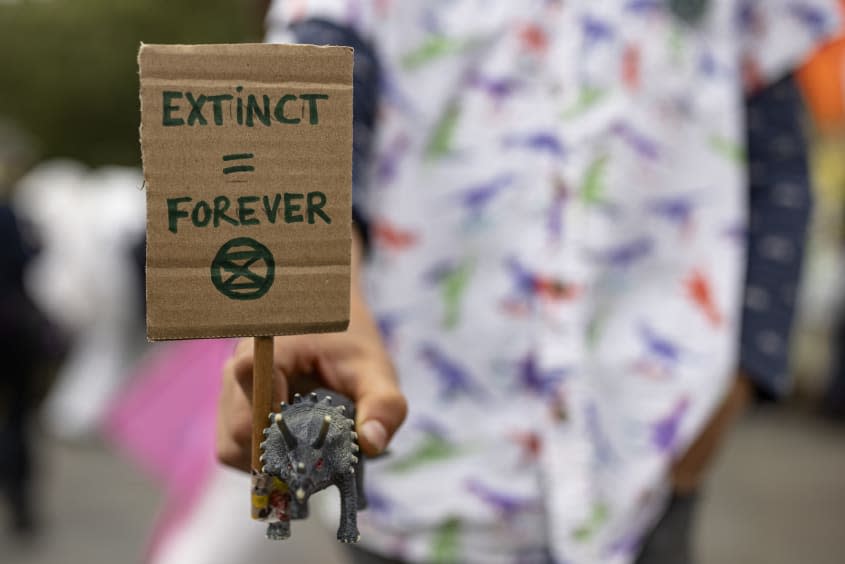When will humans go extinct?

Life on Earth has reached its sixth mass extinction, which is "usually defined as about 75% of the world's species being lost in a short period of geological time," according to the Natural History Museum. While the previous mass extinctions came about due to natural causes, Forbes reported, "this is the first mass extinction event that is the result of the actions of just one species — humans."
Many of the extinctions are due to various ecological problems caused by climate change and pollution. With the human footprint on extinction, experts have debated whether we will cause our own demise in the near future as well, given the threats of climate change as well as artificial intelligence and nuclear power, all of which have been shown to have potentially catastrophic impacts.
Sooner than we think
Climate change is sending Earth's ecosystems "toward collapse much sooner than scientists thought," with a number of the planet's tipping points approaching quickly, wrote Ben Turner for LiveScience. Tipping points refer to changes that we cannot come back from, like the melting of the Arctic permafrost. "This means that significant social and economic costs from climate change might come much sooner than expected, leaving governments with even less time to react than first thought."
We are already seeing the loss of species across the globe. "The only other times the mass extinction levels have reached where they are now are following massive global natural disasters," Tim Newcomb explained in Popular Mechanics. Human activities are destroying habitats globally, spelling disaster for a number of species. "To put it bluntly, the current way of Earth will kill off humans' way of life."
Artificial intelligence is also a threat to humanity, and "it seems only a matter of time before computers become smarter than people," Émile P. Torres wrote for The Washington Post. Experts have warned of the threat of AI leading to human extinction, namely predicting that computers may take on the role of superior beings to humans ultimately leading to our downfall."It's unclear humanity will ever be prepared for superintelligence, but we're certainly not ready now."
Not quite yet
Despite looming threats, we cannot overlook humanity's resilience. "Humans have long been distinguished for their capacity for empathy, kindness, the ability to recognize and respond to emotions in others," KC Cole remarked in Wired. We have "a sense of self" and "pride ourselves on creativity and innovation, originality, adaptability, reason." Because of that, it's too early to be certain that we are headed to our end just yet.
"We're also in an era of abundance — and remarkable wealth — that's fueling innovation that could enable us to fundamentally change our destiny," remarked Avi Jorisch in the Jerusalem Post. The bigger problem may actually be humans stagnating themselves because of negative outlooks. "Psychologists have long believed that some amount of hope, combined with a belief that personal actions can make a difference, can keep people engaged on climate change," meaning that hope can drive change, explained Shannon Osaka in the Post. "But finding the balance between constructive worry ... and a sort of fatalistic doom is difficult."
"Whether we're headed toward utopia or dystopia — or something in between — will rest on the decisions humanity makes over the next few years," Jorisch continued. The key is to leverage humanity's knack for innovation, and "if used for good," it will "allow us to make the world a far better place."
You may also like
Florida construction and agricultural workforces diminished after new immigration law takes effect
Judge limits how Biden officials can communicate with social media companies
How solar and wind energy are saving Texans from a record heatwave

